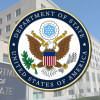Unbridled corruption and a minister’s reckless comment

As one of the fastest growing economies in Asia, Bangladesh is currently the 35th largest economy in the world (as of 2022) and aspires to clinch the 25th spot by 2035—earning the apt label of "the emerging Asian Tiger." Grand ambitions, grander dreams and the grandest rhetoric by our politicians and policymakers make the country look all set to conquer the future.
Unfortunately, the reality is, Bangladesh is mired in multiple economic and sociopolitical challenges that would make achieving these ambitious targets considerably difficult. With a persistent high inflation (9.89 percent in May 2024), rising poverty and people's shrinking purchasing power, uncontrollable foreign exchange volatility that we are having to cushion with foreign loans, non-performing loans (NPLs) reaching an all-time high of Tk 182,295 crore, and the economy struggling to grow with the IMF repeatedly slashing growth projections, our economic hurdles ahead look overwhelming.
However, the single biggest factor that creates the major roadblock to our growth aspirations is the unbridled corruption that has permeated every layer of every organ of the governance system, crippling the nation and creating a hollow at the heart of our economy. A study titled "The state of the business environment in Bangladesh," conducted by the Centre for Policy Dialogue (CPD) and World Economic Forum (WEF), identified corruption as the most problematic factor in doing business in Bangladesh in 2023, with 67.6 percent of respondents pointing to high levels of corruption. In the Corruption Perceptions Index (CPI) 2023 by Transparency International, Bangladesh secured the 10th lowest score at 24 out of 100. In South Asia, Bangladesh holds the second lowest position, just above Afghanistan. This is the lowest score for the country since 2012.
Recent reports on former law enforcement officials and revenue collectors being nose deep in various forms of corruption and criminal activities, including land grabbing and insider trading, as well as a sitting MP being involved in smuggling, which got him killed in a foreign country, are disturbing and portrays a picture of a society that is rotting from the inside.
But what is more alarming is the specious—almost defensive—narratives by the powers that be that have emerged following these revelations. The Bangladesh Police Service Association (BPSA), for instance, has come down heavily on the media in the aftermath of the investigative reports into the misdeeds and corruption of former and current police high-ups, terming these reports as "partial," "ill-motivated," and "exaggerated"—a smear campaign—and warning them to refrain from publishing such reports going forward. Meanwhile, a high-profile minister of the current regime has also made a bizarre comment about the latest wave of corruption revelations.
While the BPSA statement is reckless and paints a picture of a public institution that is trying to cover up the criminal activities of its members, rather than taking a rectification approach, the comment by the minister comes off as blatantly apologetic for the corrupt and corruption as a practice.
The minister's comment demands in-depth scrutiny for understanding. There are three main points to the comment: the universality of corruption and acceptance of corruption in his own ministry, as well as among politicians; asking for introspection for those who are asking for accountability of the corrupt officials; and reiteration of the government's zero tolerance policy against corruption.
To start with, saying that corruption is universal is tantamount to normalising it, which is undesirable and contrary to a lawmaker's oath of office, "I will faithfully discharge the duties of my office according to law: That I will bear true faith and allegiance to Bangladesh: That I will preserve, protect and defend the Constitution and the laws of Bangladesh: And that I will do right to all manner of people according to law, without fear of favour, affection or ill-will." While it is a positive sign that the minister has accepted that corruption is pervasive among his own political network and within his own ministry, one cannot help but ask: what has he done so far to prevent the spread of corruption among those he knows are corrupt, and how many have been held accountable for their actions?
The second point was perhaps a jab at the opposition parties who are blaming the disintegration of the integrity of the governance apparatus, resulting in rampant corruption among bureaucrats. However, just because previous governments have been engaged in corruption does not give the current regime the scope to take it as a normal practice, or allow it to evolve in new dimensions. So, there is no reason for anyone to look into the mirror before calling a spade a spade.
Finally, while it is nice to hear repeatedly that the government remains committed to its zero tolerance policy against corruption, it has unfortunately remained lip service only, and we are yet to see any meaningful actions being taken to walk the talk.
To put it short, the minister's comments are not only provocative, offensive and irresponsible, but at times a violation of his own oath as a member of parliament. There is no way we expect a responsible public representative to make such careless remarks that would put into question not only their own morals, but also the moral authority of the government. No wonder we have reached a point where bureaucrats and politicians alike are engaged in heavy corruption, plundering the hard-earned money of the people, with almost no consequences.
The minister owes the people an explanation of his remarks and an apology at the very least. And the ruling regime should focus less on talking and more on actions, to create a conducive environment that truly eliminates corruption from our governance system and supports our growth aspirations.
Tasneem Tayeb is a columnist for The Daily Star. Her X handle is @tasneem_tayeb.
Views expressed in this article are the author's own.
Follow The Daily Star Opinion on Facebook for the latest opinions, commentaries and analyses by experts and professionals. To contribute your article or letter to The Daily Star Opinion, see our guidelines for submission.

 For all latest news, follow The Daily Star's Google News channel.
For all latest news, follow The Daily Star's Google News channel. 











Comments